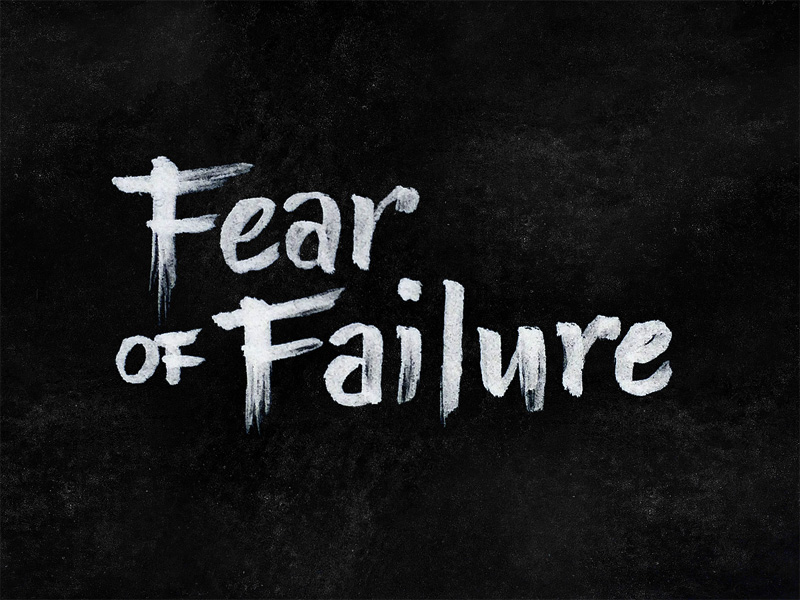It’s hard to believe that we will very likely be on snow in less two months and, fingers crossed, back in the start gate soon after. After the abrupt end of the last race season, everyone in the ski racing community is “jonesing” to get back on the hill to train and then race. The lost opportunities caused by the Covid-19 crisis and this urgency to get back to racing may cause many racers to feel pressure to get results fast (I’m seeing this with my ski-racing clients).
This recognition led me to think more about how to help racers best prepare mentally for the upcoming season. To be sure, you should be doing a lot of mental imagery, building your confidence, and exposing yourself to all kinds of challenges to build your resilience. At the same time, being mentally prepared on race day involves more than being motivated, confident, and focused. Rather, it means having healthy attitudes that will enable you to feel free to ski your fastest with commitment and courage and without fear, worry, or doubt. It also means removing unhealthy attitudes that will mean almost certain failure if you carry them into race season.
 Over a four-part series, I’m going to share with you what I believe is the single greatest psychological and emotional obstacle to skiing your fastest: fear of failure. Fear of failure is the most common cause of performance difficulties for the young racers who come to me for help. Whether they experience low confidence and extreme negativity, pre-competitive anxiety, a preoccupation with results, or severe self-criticism, in most cases, when we dig deep enough, we discover a profound fear of failure at its root. Moreover, fear of failure among young people in America today is at epidemic proportions.
Over a four-part series, I’m going to share with you what I believe is the single greatest psychological and emotional obstacle to skiing your fastest: fear of failure. Fear of failure is the most common cause of performance difficulties for the young racers who come to me for help. Whether they experience low confidence and extreme negativity, pre-competitive anxiety, a preoccupation with results, or severe self-criticism, in most cases, when we dig deep enough, we discover a profound fear of failure at its root. Moreover, fear of failure among young people in America today is at epidemic proportions.
Fear of failure causes racers to experience debilitating anxiety before they race. It causes them to give less than their best effort, not take risks, ski cautiously, and, ultimately, never ski as fast as they can. Why? Because they are terrified of what will happen if they fail!
Because of the powerful and painful presence of fear of failure in the lives of many young racers (not to mention students and other young performers) these days, it seems fitting that I devote this four-part series of articles to this topic as race season approaches. My goal is to educate racers, parents, and coaches, so each can better understand fear of failure and, most importantly, have parents and coaches help their young racers to let go of this fear and free themselves to ski their best without fear of the consequences, whether real or imagined.
Is Failure Worth Fearing?
The reality is that failure is essential for success. In fact, the most successful people in every walk of life failed frequently and monumentally on their journey to the top. Failure offers important lessons that ultimately lead to success including identifying what doesn’t work and how to respond positively to setbacks. To answer my question, no, failure isn’t worth fearing. To the contrary, failure, though not ideal, should be embraced because of its important role in finding success. So, if failure isn’t worth fearing, what causes racers to experience fear of failure?
Why Racers Fear Failure
Rather than fearing failure itself, what racers come to fear is the meaning they attach to failure. At the heart of fear of failure is the belief held by young racers that if they fail, in ski racing or any other aspect of life, then bad things will happen. An extensive body of research examining fear of failure has found that the following are the most common fears expressed by athletes:
- They will disappoint their parents.
- Their parents won’t love them.
- Their friends will no longer like them.
- They will experience embarrassment or shame.
- They will be worthless people.
- All of their efforts will be a waste of time.
- They will be failures the rest of their lives.
These statements sound so extreme as to seem unbelievable. Yet, my own experience working with athletes affirms that these fears are far more common that we would expect and very real for athletes suffering from a fear of failure.
 Fear of failure typically emerges from messages that racers receive from their parents, coaches, and our achievement culture that being loved, accepted, and valued depends on their being successful. Racers with a fear of failure perceive failure to be a ravenous beast that pursues them relentlessly and must be avoided at all cost. When they do succeed and avoid that beast, they only experience a small and brief amount of relief because they survived one more day without being eaten by failure. As a result, avoiding failure becomes their singular motivation and goal in life.
Fear of failure typically emerges from messages that racers receive from their parents, coaches, and our achievement culture that being loved, accepted, and valued depends on their being successful. Racers with a fear of failure perceive failure to be a ravenous beast that pursues them relentlessly and must be avoided at all cost. When they do succeed and avoid that beast, they only experience a small and brief amount of relief because they survived one more day without being eaten by failure. As a result, avoiding failure becomes their singular motivation and goal in life.
Our “Winning is Everything” Culture
Another place that racers get this unhealthy perspective on failure is from the hyper-achievement culture in which we now live. This “you gotta win, baby!” culture defines failure as being poor, anonymous, powerless, unpopular, or physically unattractive. On television and in the movies, the losers—nerds, unattractive people, just people who are different—are teased, bullied, and rejected. With this definition of failure, this environment has created a culture of fear and avoidance of failure.
This culture has conveyed to racers that if they fail, they will be ostracized by their peers and branded as losers for life! There is no greater stigma in our “gotta be the best” culture than being labeled a loser. The expression loser has become an oft-used and enduring symbol in this culture. To be called a loser is, to paraphrase a well-known sports cliché, worse than death because you have to live with being a loser.
Three Ways to Avoid Failure
Racers learn that they can avoid failure three ways. First, they can simply quit racing. If racers don’t race, they can’t fail. And this is one cause of the high drop-out rate we have in our sport; the overemphasis on results at a young age can make ski racing a pretty darned unpleasant sport to be in. Injury, illness, damaged, forgotten, or lost equipment, apparent loss of interest or motivation, or just plain refusal to ski are common ways in which racers can protect themselves from the perceived consequences of failure.
Second, racers can avoid failure by, oddly, doing poorly in ski races, but protecting themselves from the failure by having an excuse—“I would have done well, but the course was really rough” or “I would have made the podium, but a gust of wind hit me.” This is called self-defeating behavior or self-sabotage. Because their failures were not their fault, racers can’t be held responsible and our culture and their parents and peers must continue to accept and love them.
Third, many racers with a fear of failure really do want to ski race, so don’t want to quit or make excuses. So another way that racers can avoid failure is to get as far away from failure as possible by becoming somewhat successful. But racers who are driven to avoid failure are stuck in limbo between failure and real success, what I call the “safety zone,” in which the threat of failure is removed, for example, they finish in the top 10, but they are unwilling to intensify their efforts and take the risks necessary to make it onto the podium.
The Value of Failure
Failure is an inevitable—and essential—part of ski racing and life. Failure can bolster the motivation to overcome the obstacles that caused the failure. It shows racers what they did wrong so they can correct the problem in the future. Failure connects racers’ actions with consequences which helps them gain ownership of their efforts. Failure teaches important life skills such as commitment, patience, perseverance, determination, resilience, and problem solving. It helps racers respond positively to the frustration and disappointment that they will often experience as they pursue their ski racing goals. Failure teaches racers humility and appreciation for the opportunities that they’re given.
Of course, too much failure will discourage young racers. Success is also needed for its ability to bolster motivation, build confidence, reward effort, and increase enjoyment. As racers pursue their skiing goals, they must experience a healthy balance of success and failure to gain the most from their efforts.
Parents and coaches can help their young racers develop a new perspective on failure that takes away their fear. It will free them to strive for success without reservation, to take risks, and vigorously pursue their dreams. Young racers will learn that some failure is okay and in no way a negative reflection on themselves as ski racers or people. In other words, failure isn’t worth fearing. Finally, failure will ultimately enable them to achieve success, however they define it and, along the way, also find happiness.
You can expect Part II of my Fear of Failure series in the near future.
Want to make mental training a part of your fall prep plan? Take a look at my online mental training courses.







